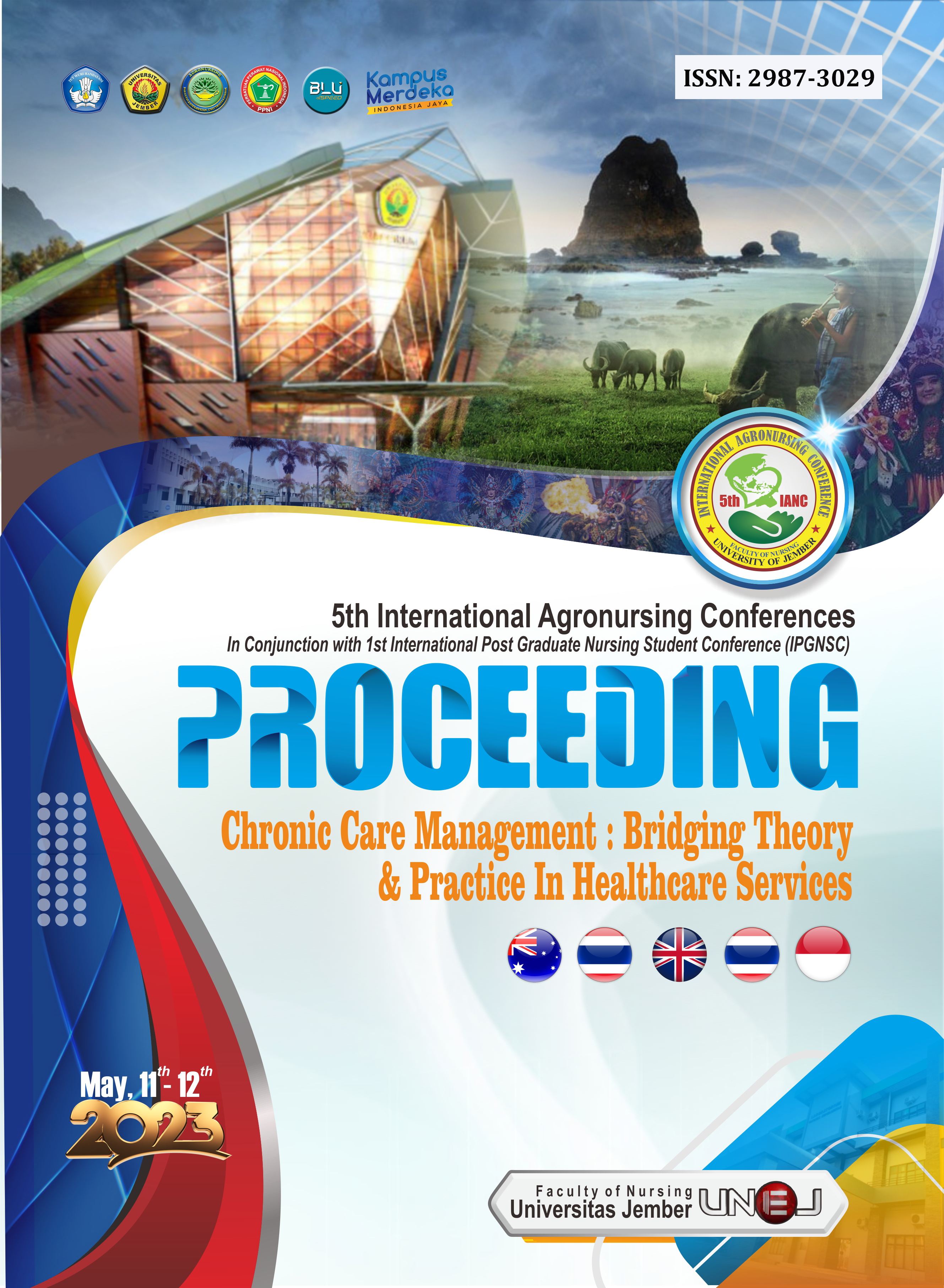RISK FAKTORS FOR DIABETIK FOOT IN FARMERS WITH DIABETES MELLITUS
Abstract
Background: Diabetes mellitus (DM) is a progressive chronic disease that requires constant medical supervision and patient education for self-care. Diabetes is associated with an increased risk of neuropathy which causes loss of touch and perception of pain. High agricultural work area (in some places) and constant risk of injury (animal bites, injuries from farming tools, not wearing footwear/shoes, feet exposed to sunlight). Farmers experiences who have to prepare planting media starting from the process of preparing the soil to plowing the land (either using a hoe, cow or tractor, and barefoot). Examination of the feet is necessary to prevent foot ulcers from occurring. The purpose of this study is to identify risk faktors for diabetik foot in farmers with diabetes mellitus in Lumajang. Methods: The research method is quantitative descriptive research. The population of this study were 141 farmers with purposive sampling technique. The data collection technique used was observation, using the 2009 Diabetes Care Program of Nova Scotia (DCPNS) foot risk assessment form. Includes skin assessment, assessment of the bone structure of the foot, assessment of blood vessels, sensation, and movement of the foot. Results: The results found that the majority of respondents were female and in the early elderly age category. While the results of observations of risk faktors for diabetik foot, almost half of the respondents have a high risk of diabetik foot. Conclusions: This study concluded that several actions need to prevent an increased risk of diabetik foot. Therefore it is necessary to have an integrated diabetik ulcer prevention management strategy, sharing consultations and optimizing effective resources to get quality care.


